Erling Björgvinsson
PhD. Researcher and Associate professor in Interaction design: critical and analytical perspectives plus active involvement in participatory design components of both strands.
Maria Engberg
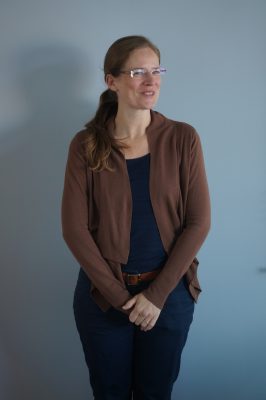 Senior Lecturer, PhD. in English. Department of Computer Science and Media Technology, Malmö University.
Senior Lecturer, PhD. in English. Department of Computer Science and Media Technology, Malmö University.
I have a PhD in English from Uppsala University and a strong profile in the Digital Humanities. I am also a collaborating researcher with the Augmented Environments Lab at Georgia Institute of Technology (US). In collaboration with this lab I have been working a lot with the Augmented Reality browser Argon. In Living Archives we explore how location aware technologies such as AR support site-specific narratives. My research focuses on critical media studies and design research: how technologies along with creative and narrative practices integrate with urban, social spaces. Within Living Archives I am interested in how media forms affect aesthetic practices and urban life. Questions that interest me in Living Archives include: how do we actually work with data, how do archival practices intersect with mediated locative platforms for sharing, and how do media design practices change with a more critically aware understanding of those mediated experiences and practices. Another key interest for me is how we engage intellectually, emotionally, and through our senses with urban mobile media.
Sofie Marie Ottsen Hansen
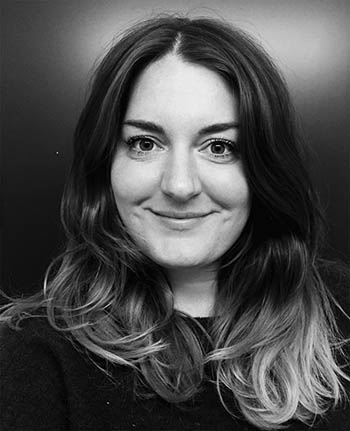 Research assistent in the Living Archives research project and adjunct at the School of Arts and Communication (K3), Malmö University. M.Sc. in Digital Design & Communication.
Research assistent in the Living Archives research project and adjunct at the School of Arts and Communication (K3), Malmö University. M.Sc. in Digital Design & Communication.
Digital Designer at Politiken. Research assistent in the Co-archiving Refugee Documentation project under Living Archives. BA in Journalism and M.Sc. in Digital Design & Communication.
I have a background in journalism from the Danish School of Media and Journalism, but have in recent years directed my focus towards the converging fields of design, technology and journalism. I have an MA in Digital Design & Communication with a specialization in Interaction Design from the IT University of Denmark.
Anders Høg Hansen
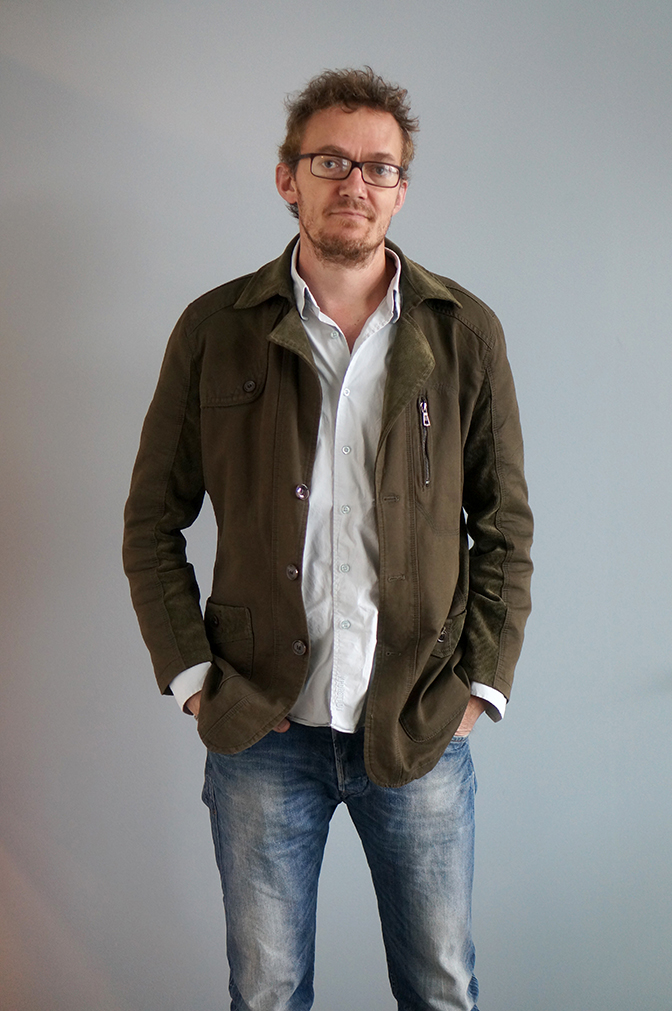 Senior Lecturer, PhD cultural studies, School of Arts and Communication, Malmö University
Senior Lecturer, PhD cultural studies, School of Arts and Communication, Malmö University
I have an MA and PhD in cultural studies from the UK where I also worked in Museum Studies for a few years. In Malmö I’m primarily involved in the MA in Communication for Development program. Over years I have been concerned with popular memory, music, oral history and stories of migration and conflict in remembrance genres. Lately there has been a new emphasis on youth and media through Unicef projects in Tanzania and Mozambique.
In Living Archives I am exploring practices of reclusion working in tandem with generally celebrated modes of openness and transparency. As an important addendum to a general desire for openness, I’d advocate for a plurality of discrete ‘residences’ or archives – and a variety of citizen arkhons (in control or authority of the archive), which – when the purpose is right – can open itself to and with others. An archive may be accessible and even hospitable, yet intimacy and interaction may in many cases be important citizen empowering additions to grand, public and often nearly dormant archives?
My activities in Living Archives have included analysis of a Malmö Folk Song archive, as well collaboration in the Women Making History project (these two with Erling Björgvinsson), and thirdly a series of cases on the opening of the journeys of enigmatic lives that have been through migration or/and conflict. This has led to some wiki entries and a book project preliminarily named ‘Reclusive Openness’. Parts of this begun with the Living Archives Openness-series on medium.com
Roger Johansson
Professor in History and the Director of Research at the Institute for studies in Malmö’s history: historical and archival perspectives for both strands.
Susan Kozel (project lead)
 I am a professor with the School of Arts and Communication (K3) and Director of the Living Archives Research Project.
I am a professor with the School of Arts and Communication (K3) and Director of the Living Archives Research Project.
Working at the convergence between philosophy, dance and digital technologies, I cultivate a creative and critical approach to embodiment in a world of ever expanding networked digital media. I contribute to both the Performing Memory and Open Data strands of Living Archives by exploring the use of Augmented Reality on mobile devices to situate archival material in urban locations (“AffeXity”); by developing the affective and performative implications of “Somatic Archiving“; and by challenging the rhetoric of openness with “Performing Encryption“.
I see archiving practices as paradoxical combinations of the subtle and overt: they are deeply embedded yet networked, elusive yet trackable. There is much discussion of what is excluded or forgotten in archiving, as if we should either remedy or celebrate the loss. Taking a somewhat different perspective, my current stance on archiving is to understand the inherent ambiguity and necessity for closure or veiling, alongside strategies for preservation and sharing.
Nikita Mazurov
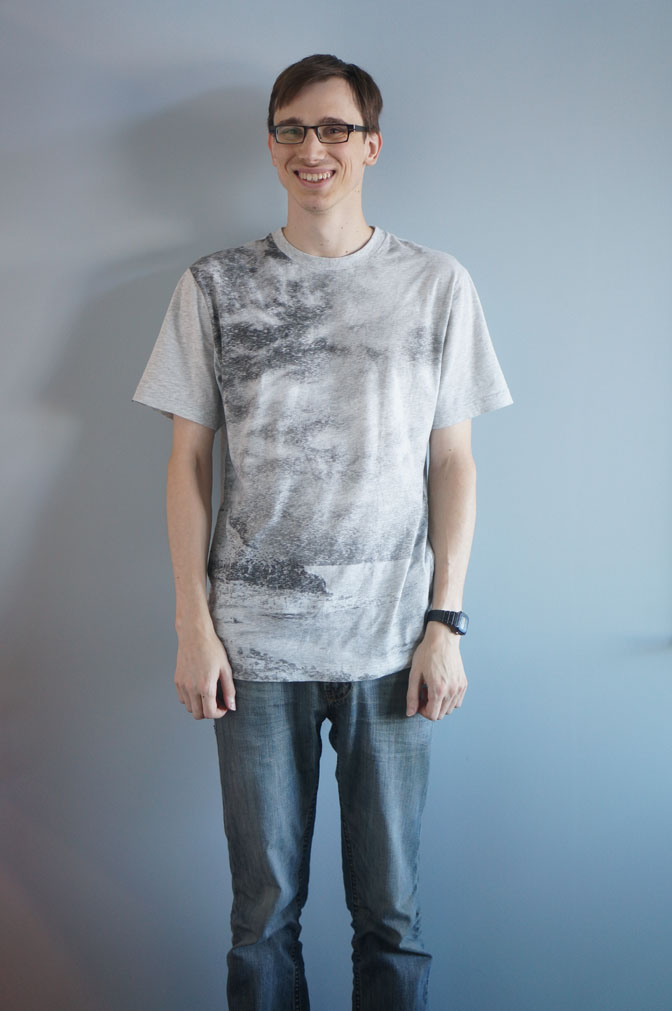 Postdoc with the Living Archives project, looking at practices of archival protection
Postdoc with the Living Archives project, looking at practices of archival protection
I recently finished my PhD in Cultural Studies at Goldsmiths, University of London where I looked at the potentiality of unbridled data dissemination by way of explicating and developing both theoretical (by way of a non-legalist, posthuman hacker methodology) and practical (anti-forensic) techniques of removing any impediments thereto by countering the politics of intellectual properties (malignancies such as copyright/left) and removing forensic watermarks from cultural bodies of work. I’m now a postdoc with the Living Archives project, looking at practices of archival protection.
My perception of archival best practices is predicated upon the notion of unreliability. Given that it may be advantageous for an archive to receive a continuous influx of material, it thus stands to reason that the removal of potential contributors, or their reluctance to contribute in the first place, would then be adversarial to the archive (not to mention that it may be highly unethical to expose archive contributors to risk of apprehension). How, then, are we to foster a sustainable possibility of continued archival contribution? For me, this aim is at least in part achieved through the heightened provision of safety assurance by elevating the level of anonymity available to potential archive contributors.
One way of striving towards anonymity is then via unreliability: by manipulating existent potentially personally identifiable information in contributed archival material (e.g. watermarks, metadata, biometrics, telemetry, etc.) so that its origins may not be readily traced back to the contributor, thus allowing the contributor the opportunity to remain safe from apprehension by any potential adversary.
In other words, one of the key issues of the practice of archiving for me is how can we help protect those who contribute to archives, thus protecting the archive itself?
Elisabet M. Nilsson
Senior Lecturer in Interaction Design, PhD in Education Sciences
Elisabet Nilsson, Ph.D. Educational Sciences, holds a position as Senior Lecturer in Interaction Design at the School of Arts and Communication (K3), Malmö University. Her overall research interest concerns the relationships between social change and technological development, and how the introduction of new technologies and mediating tools evoke new patterns of behaviour and thinking. Since 2010 she has been working in the field of interaction design running research projects conducted in real-world settings, applying participatory design, and living lab methodologies. In one way or another, all her projects circulate around matters of sustainability with a focus on tools and methods for prototyping alternative futures and promoting dialogue, collaboration and knowledge transfer. Besides research activities, she also teaches at the Interaction Design Master’s and Bachelor’s Programmes at K3. In Living Archives, she has been part of developing the research themes Co-archiving and Urban Archiving.
Temi Odumosu
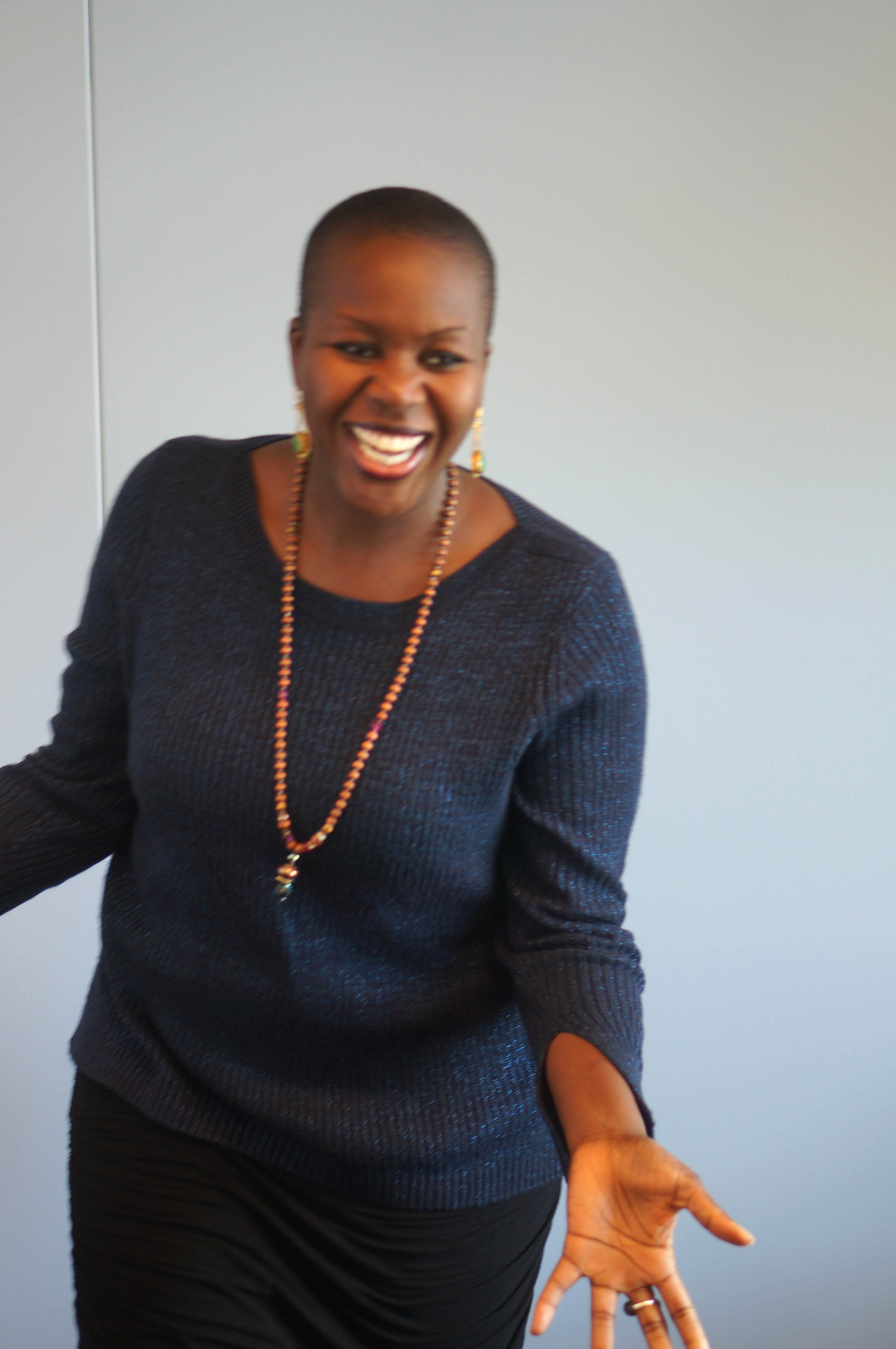 I am an Art Historian and one of the Postdoc researchers for the Living Archives Research Project.
I am an Art Historian and one of the Postdoc researchers for the Living Archives Research Project.
For over ten years I have explored the historical representation of African people in the West, in order to understand how visible differences impact social, cultural and political recognition. Much of my academic research has been on early caricatures and popular printed images, made during the era of transatlantic slavery and its abolition. These visual texts are important because they have served as a crucial form of propaganda, inscribing some of our deepest stereotypes and ethnic notions. But images are only one part of a bigger picture, and at the heart of my work is essentially a quest for story: digging for voices, memories and traces that help to reinstate the subjecthood – that necessary “I am” – so often denied to those who are marginalised or forgotten. This is how I have managed to collaborate openly across disciplines, finding voice in artefacts, maps, buildings, code, and even in the molecules of genes.
I contribute to the Performing Memory strand of Living Archives through a suite of research interventions under the title Close Contact. Primarily I am using Augmented Reality (AR) experimentally as a tool for interfering with colonial amnesia. In collaboration with project members we are developing curated interventions with device-based technologies that assist in time travel and expose what is either hidden or silent. I am also interested in the effects of entering archives for researchers who work with challenging material, and thus developing a reflective soundscape project to capture these untold stories.
My Yoruba cultural heritage is one that is entrenched with archiving rituals that begin with the songs of the elders who welcome your birth, narrate your family lineage, and imbibe the secrets of your destiny through a deeply considered name. Even before you can speak you are subtly cognizant of an embodied and dynamic relationship to a larger cultural schema. In this way I consider archiving as a holistic narrative method for linking people to place and memory, using old connections or forging new ones, through a series of practices and gestures supported by a duty of care.
Jacek Smolicki
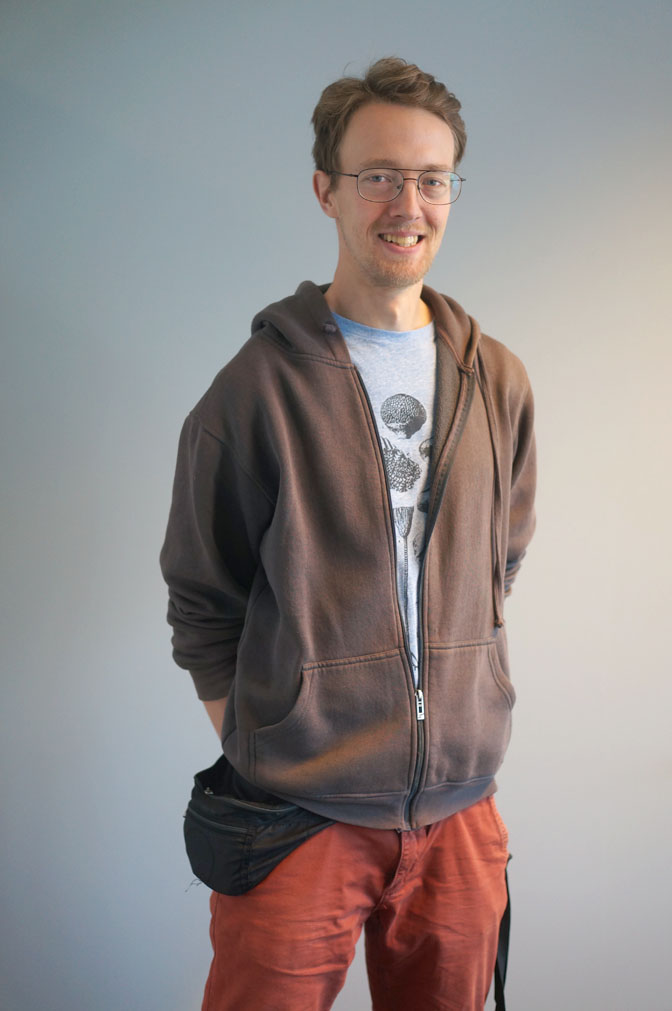 PhD candidate in Media and Communications and within the Living Archives Research Project.
PhD candidate in Media and Communications and within the Living Archives Research Project.
I am an artist and designer with MFA degrees in Methodology of Design, Interdisciplinary Studies/Experience Design and Sound Art currently studying towards PhD in Media and Communication Studies at the School of Arts and Communication, Malmö University. My practice-based background is built upon an a range of diverse international initiatives and projects including such forms as interactive installations, sous-veillance art, site-specific memorial art, soundwalks, immersive soundscapes and performance (more on www.smolicki.com). Since 2008, I have been regularly recording my presence by the means of consistently performed practices deploying a range of multimodal technologies and artistic techniques (www.on-going.net).
My work attempts to open up and rethink the concept of the archive and archiving practices taking into account what I denote as ‘capture culture‘ – a condition instigated by an ever expanding proliferation of capturing and tracking technologies as well as increasingly automated life-logging practices. While acknowledging the implications of this condition (transpiring in debates on e.g. big data, data surveillance) and recognizing a certain polarization of views in relation to data collection practices (‘dataphobia’ versus ‘dataphilia’) I am interested in exploring methods of living with recording and archiving technologies beyond such radicalized stances. Therefore, drawing on both practices and theories of database aesthetics, media archaeology and media art, in my research I investigate how artistic methodologies can contribute to the debate on personal archiving in the light of the aforementioned context. I convey this study along with a practical and reflective engagement in my own, life-long archiving practices.
Daniel Spikol
PhD. Assistant Professor. Computer Science.
Veronica Wiman
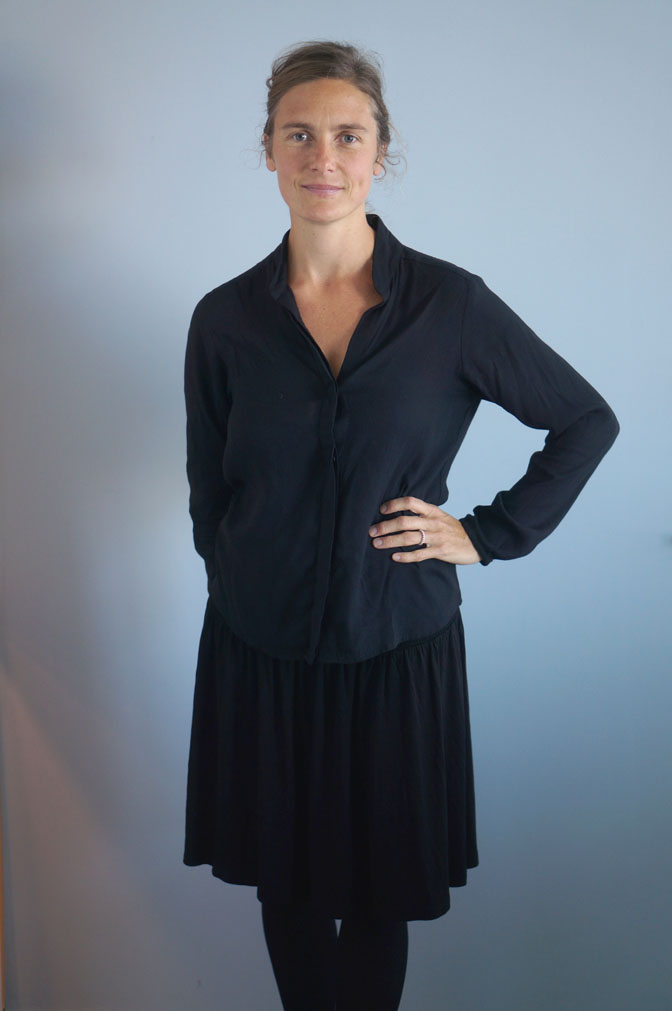 Curator of contemporary art and a professor of contemporary art at the Academy of Contemporary Art in Tromsö.
Curator of contemporary art and a professor of contemporary art at the Academy of Contemporary Art in Tromsö.
Since the past fifteen years I have been working internationally with curatorial practice and educational processes. I have moved physically and intellectually between cultures, locations and practices collecting and interpreting people, material and their contexts from a critical perspective. Contemporary art, conceptual craft and design is a lens that allows me to understand life and participate in society and the politics of everyday life. My interest lies in the trans-disciplinary field with a focus on gender and power structures, and where art practices has a potential to move the world forward. With a focus and experience of within the museum and the public realm, as well as bridging the two, has led my research into various directions. Curatorial work has explored the exhibition as a narrative and as an archive. Social practice, participation and dialogical describe some of the interventions and processes that have unfolded over the past ten years. Through extensive worldwide projects, sometimes referred to as radical curating, of urban interventions and citizen engaged exhibitions like Civic Matters, Urban Concerns, The Gatherers Greening our Urban Spheres, Fear and Gender in Public Space, I have collaborated with citizens, artists, museums, municipalities, NGOs, universities and more. I most recently directed Espacio de Arte Contemporáneo at Museo de Arte Moderno la Tertulia in Cali, Colombia. Together with ASOMUCAF we built the playground and conceptual site La Vida es un Teatro in the eco-village for women in Nashira Colombia.
“We are dropping notes of our time” an artist says in the conversation we have about our art practices and writing history. My interest lies within curating the archive as well as investigating the aesthetics and politics of collecting, compiling and presenting stories and gestures. Within the Living Archives research project my research has been in the Urban Archiving strand. Here I have been working with artistic research and practice in relation to urban texture, storytelling and performing the archive. We have been working with gardens and communities as archives to explore memory, cultural heritage and inclusion vs exclusion.
» Contact Veronica at mail(at)veronicawiman.net
People previously affiliated with the project
Jeannette Ginslov, artistic researcher
Marie Gustafsson Friberger, researcher
Sayaka Osanami Törngren, researcher
Camilla Ryd, research assistant
Richard Topgaard, web editor
Page last revised Jan 25, 2016, by Richard.



